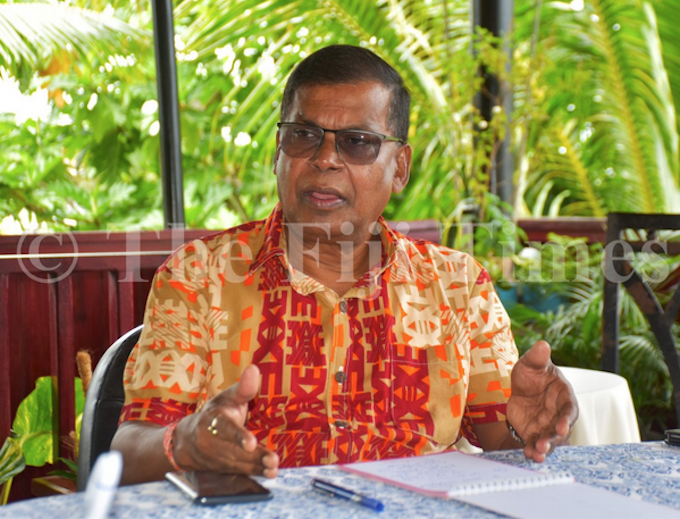
COMMENTARY: By Stanley Simpson, director of Mai TV
You can wake up one morning in Fiji and feel like you’re living in a totally different country.
Overnight we have lost two of our three Deputy Prime Ministers — by many accounts these were the two who were perhaps among the most influential and pivotal in the running of this government.|
Just like that. No longer in cabinet.
- READ MORE: Fiji’s Deputy Prime Minister Biman Prasad charged by FICAC
- Second Fijian Deputy PM charged with corruption-related offences
- Kamikamica resigns amid Fiji corruption charges
For days news of Biman’s impending arrest was being posted about in advance — clearly leaked by people inside Fiji Independent Commission Against Corruption (FICAC). So it did not come as a total surprise.
But reading the reactions on social media — what has surprised, unnerved and confused many — especially government supporters, is how and why does a government charge their own when many in the previous government they wanted to be held accountable continue to walk free?
Why did charges against the two DPM’s take priority?
Is that a sign of how divided they are — or how upright and full of integrity they are?
Charges seem small
The charges brought against the two DPM’s seem small when compared to the significant impact of their removal from cabinet. PM Sitiveni Rabuka, when he was SODELPA leader in 2018, was charged with more or less the similar offence DPM Biman is being charged with — inaccurate declaration of assets and liabilities under the Political Parties Act.
Rabuka was acquitted on the eve of the 2018 election.
Many thought then the whole charge was nothing more than the former Bainimarama government trying to take out its main competitor ahead of the 2018 elections. There was a strong anti-FICAC sentiment then by those now in power.
The main gripe of the coalition parties coming in was that FICAC was being used by those in power for their political agenda — and needed to be disbanded and come under the Police Force.
Rabuka said as much to me in a 2022 interview.
Inevitably, many are now openly wondering if the same thing FijiFirst was accused of doing is happening here, and if this is a machiavellian political strategy for power. To take out a potential internal challenger and clear out a coalition partner so PAP can fight the next elections on its own and focus on winning it outright.
With the support of some former FijiFirst MP’s — PAP has more than enough numbers — and not as reliant on NFP and SODELPA any more.
Coalition has been great
The coalition has been great — but it has been a headache keeping everyone together and managing everyone’s competing interests.
However, the PM has grounds to argue that he is just following the process and maintaining the integrity of FICAC’s fight against corruption — that was severely compromised with the appointment of Barbara Malimali as per the Commission of Inquiry report.
That all he is practising are the principles of transparency, accountability and good governance. Nothing more, nothing less.
That matter is being heard in court with the ruling to be delivered by 23 January 2026 — three months away.
Rabuka has stated that “no one is above the law” and seems confident of weathering any political storm.
But the dark political clouds are forming. Expect more thunder and lightning strikes as more influential people in key positions are expected to be arrested, putting the political and judicial landscape in turmoil.
Forecast is uncertain.
Many storms before
Rabuka has been through many storms like this before. He says he continues to have the support of everyone on his side, including the two DPM’s recently charged.
For now he remains firmly in charge.
But what was once just whispers of internal dissent and division that many of us once dismissed as rumours is starting to grow, as politicians weigh their options.
Whether it turns into a split or full on rebellion, or everyone realise they have no choice but to fall in line, we shall wait and see.
Could we see a repeat of 1994 when Rabuka’s government was brought down from within but he managed to win enough in the elections and form a coalition with the GVP to remain in power?
As of now many in politics are trying to work out which way the wind will blow.
Stanley Simpson is director of Mai TV, general secretary of the Fiji Media Association (FMA) and a media commentator. This is an independent commentary first published on his Facebook page and republished with permission.









































